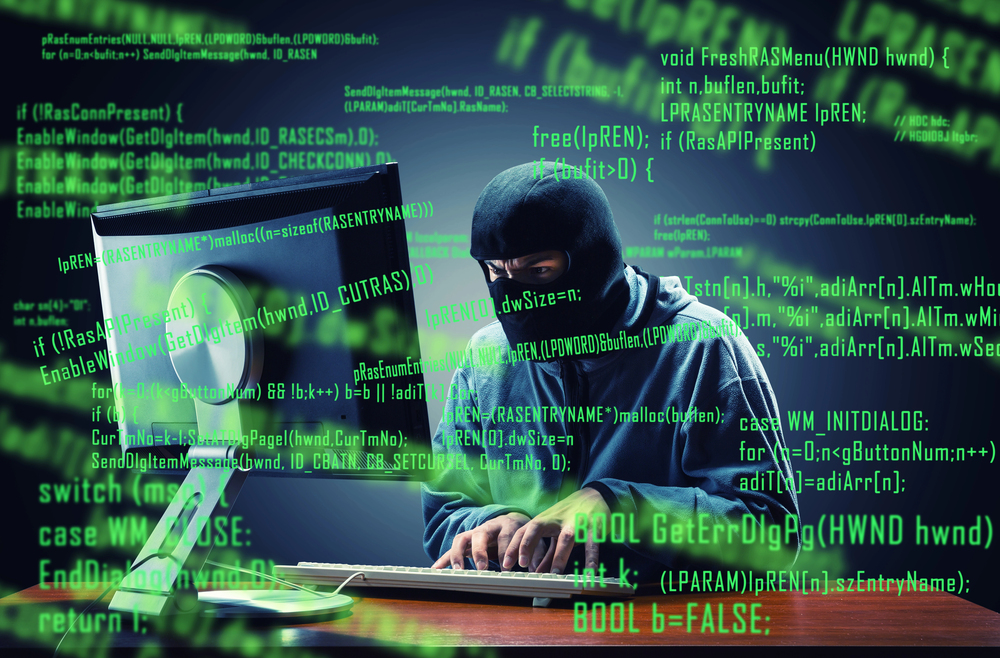
Online IP infringements rise during the holiday period
New analysis from enterprise-class domain registrar CSC reveals that for the past three years, seasonal IP infringements have risen sharply in Q4 and remained elevated through January, when post-holiday sales draw heavy consumer traffic.
The combination of high demand, gift-driven impulse buying, and deep discounting creates a perfect environment for cybercriminals to ply their trade. Over the holidays, fraudsters set up fake websites and lookalike domains impersonating legitimate brands.

New detection platform built to prevent intellectual property theft
Most high-value digital assets, including source code, financial reports, strategic roadmaps, patents and proprietary research, don’t contain traditional sensitive data identifiers. As a result, they’re invisible to legacy pattern-matching tools.
This blind spot exposes organizations to intellectual property theft, insider threats, and accidental leaks through modern collaboration platforms and shadow AI tools. This is why Nightfall is today announcing the launch of AI File Classifier Detectors, a solution that uses large language models (LLMs) to classify and protect business-critical documents that traditional DLP tools can‘t see.

12 percent of employees take IP with them when leaving a job
New research into hundreds of insider threat investigations released by DTEX shows that 12 percent of employees take sensitive intellectual property with them when they leave an organization.
The DTEX i3 (Insider Intelligence and Investigations) team has produced an infographic of the results of the research.

Businesses have a one-in-three chance of losing IP when an employee quits
There is 37 percent chance of a company losing IP when an employee quits, according to a new report from insider risk management company Code42.
Hot on the heels of yesterday's report about malicious insiders, the study, carried out by Vanson Bourne, finds that cybersecurity teams are facing unprecedented challenges when it comes to protecting sensitive corporate data from exposure, leak and theft.

Apple hit with $0.5 billion bill for patent violation with FaceTime, iMessage and VPN on Demand
Apple has been ordered to pay $502.6 million in damages after a federal jury in Eastern Texas found that the company had violated patents owned by VirnetX.
The intellectual property battle -- relating to FaceTime, iMessage and VPN on Demand -- started back in 2010, with VirnetX claiming that Apple was violating four of its patents pertaining to communication security. Having been slapped with a $0.5 billion bill, it now remains to be seen whether Apple will actually stump up the cash.

Kaspersky Lab is against SOPA: quits Business Software Alliance for supporting it
Security research company and prominent antivirus software vendor Kaspersky Lab has announced its intent to withdraw from the Business Software Alliance (BSA) because of the Alliance's support for the Stop Online Piracy Act (SOPA, also known as H.R. 3261).
The Business Software Alliance (BSA) and the Software & Information Industry Association (SIIA) are the software industry's two biggest trade groups. Since both groups have strong anti-piracy stances, neither directly opposed the Stop Online Piracy Act. Both expressed interest in working with Congress to design the law.

You oppose Congress' kill free speech on the Internet Act
The results are in to BetaNews poll "US Congress is considering two new copyright bills: PROTECT IP and Stop Online Piracy Act. Do you support them?" Among the 2,560 people who responded to the question (so far), 63 answered "Yes". Who are these people? I'm surprised it's that many. Only 95.43 percent answered "No" to legislation with wide bipartisan support and likelihood of passing both Houses in some form.
"Whenever you hear about something having 'bipartisan' support, hold onto your wallet and don't pick up the soap" writes commenter psycros. My own reaction is equally strong, and the proposed bills are supposed to protect me. I'm a victim. Everyday people steal copyrighted content BetaNews paid to produce and posts it for their own profit -- if nothing else feeding off the Google economy. PROTECT IP and SOPA are supposed to protect my writing and livelihood as a copyrighted content producer. No thanks.

Mozilla pleads: 'Protect the Internet' from Stop Online Piracy Act
This morning, as I write, the US House of Representatives is conducting a hearing on the Stop Online Piracy Act. Senate version of the bill is PROTECT IP. Either bill would dramatically change how Americans use the Internet, by granting power to shut down sites for many reasons -- in the case of SOPA simply for linking to another site or content that may be pirated.
I'll probably write a commentary about the bills, which their critics claim will undermine free speech that made the World Wide Web an enabler of communications, commerce and transparency. Many opponents of both bills express greater concern about the House version, SOPA, which was introduced in late October. Patrick Leahy (D-VT) introduced the Senate version, PROTECT IP, in May. The bills' motivations are simple: To extend copyright protections to the Internet.

Searching for stolen content, Warner steals from Hotfile
Entertainment company Warner Bros. is defending its anti piracy efforts following allegations of abuse, including removing content that it did not own the copyrights to. The claims raise serious questions as to whether current anti-piracy efforts making its way through Congress may punish innocent parties if this is a common occurrence.
File hosting service Hotfile sued Warner in September, claiming that after granting server access to Warner to remove copyrighted content, the media giant not only removed its own but also content it owned no rights to.
